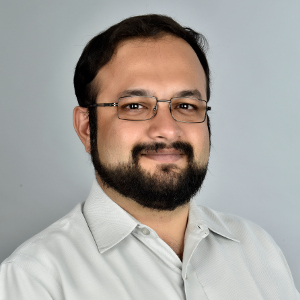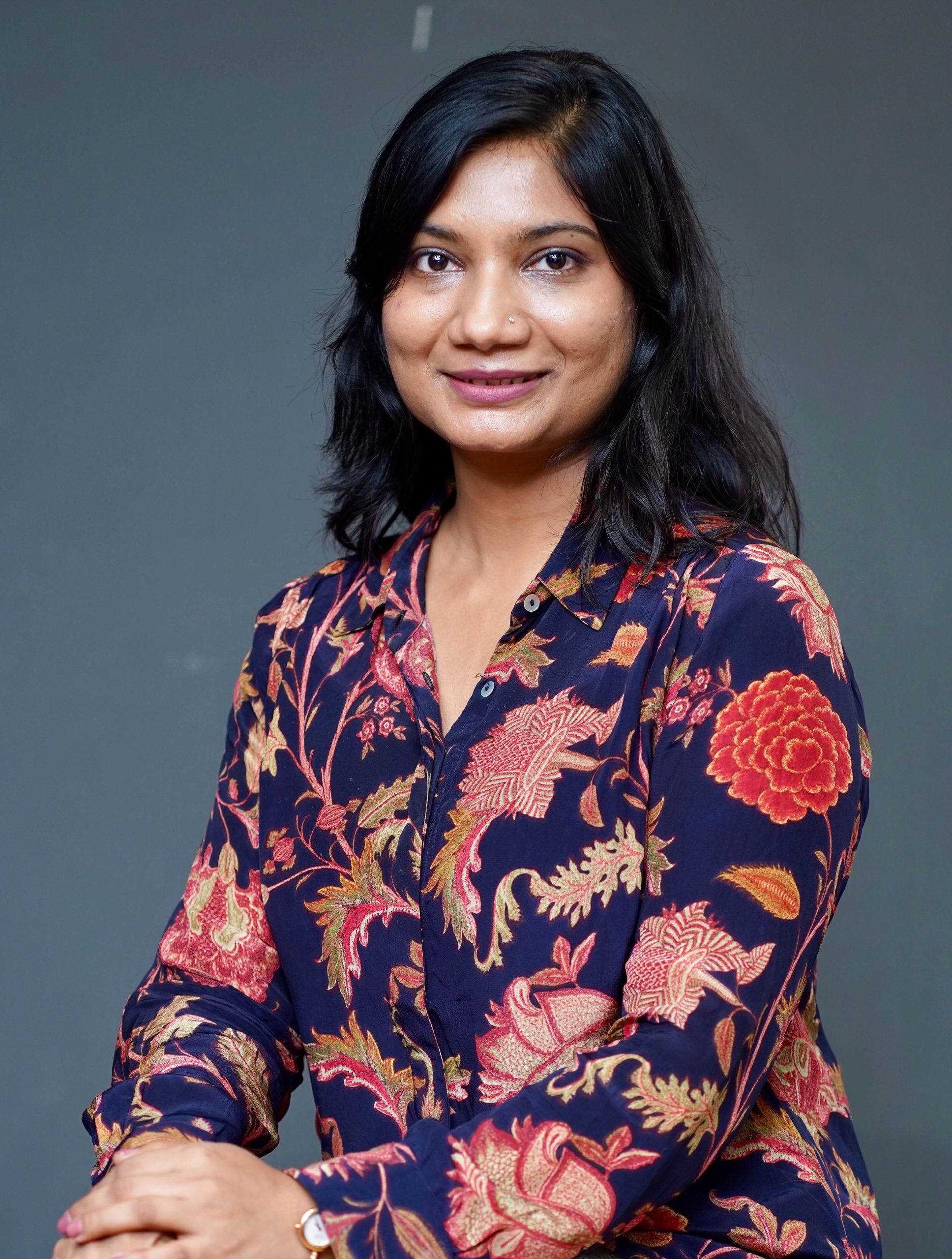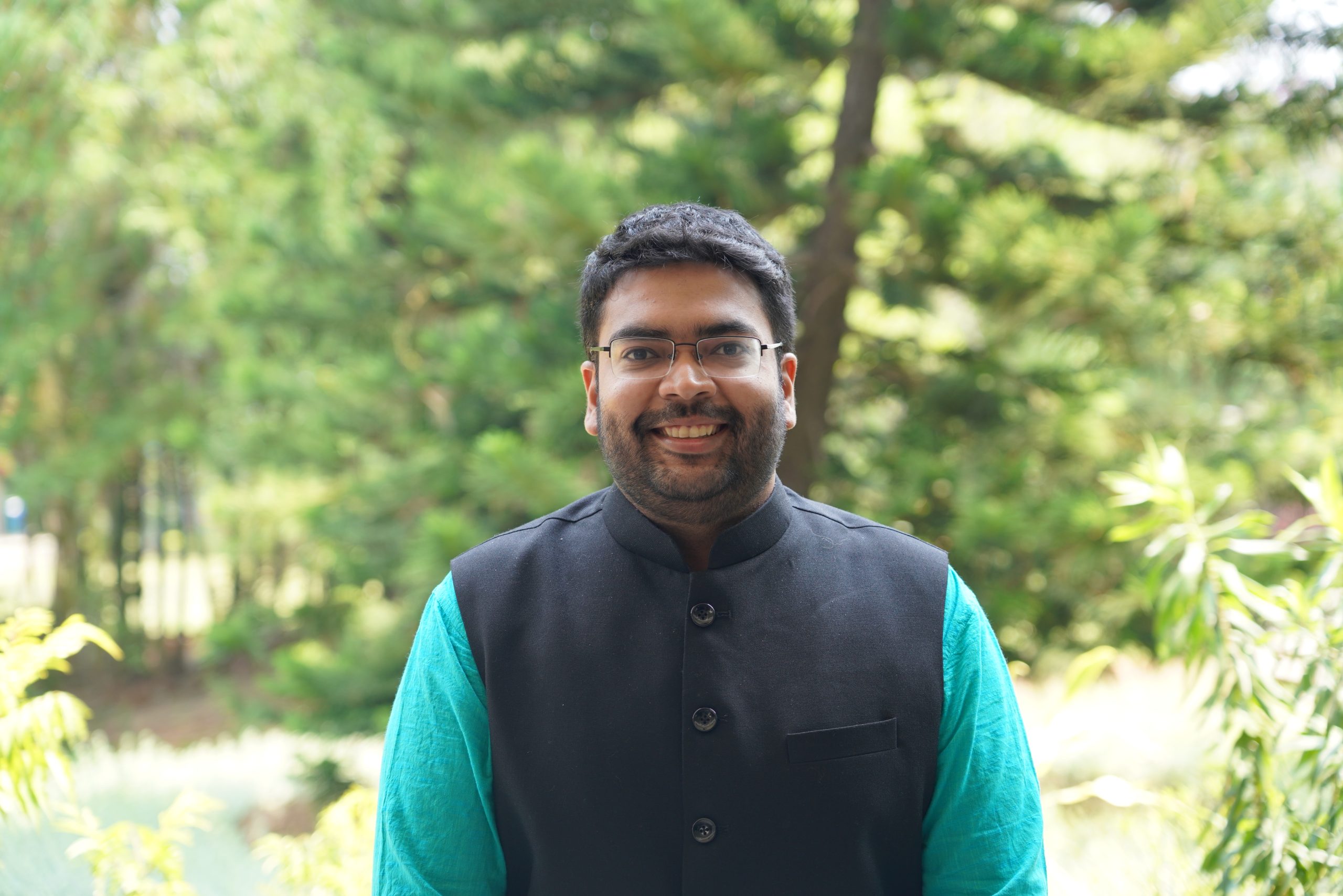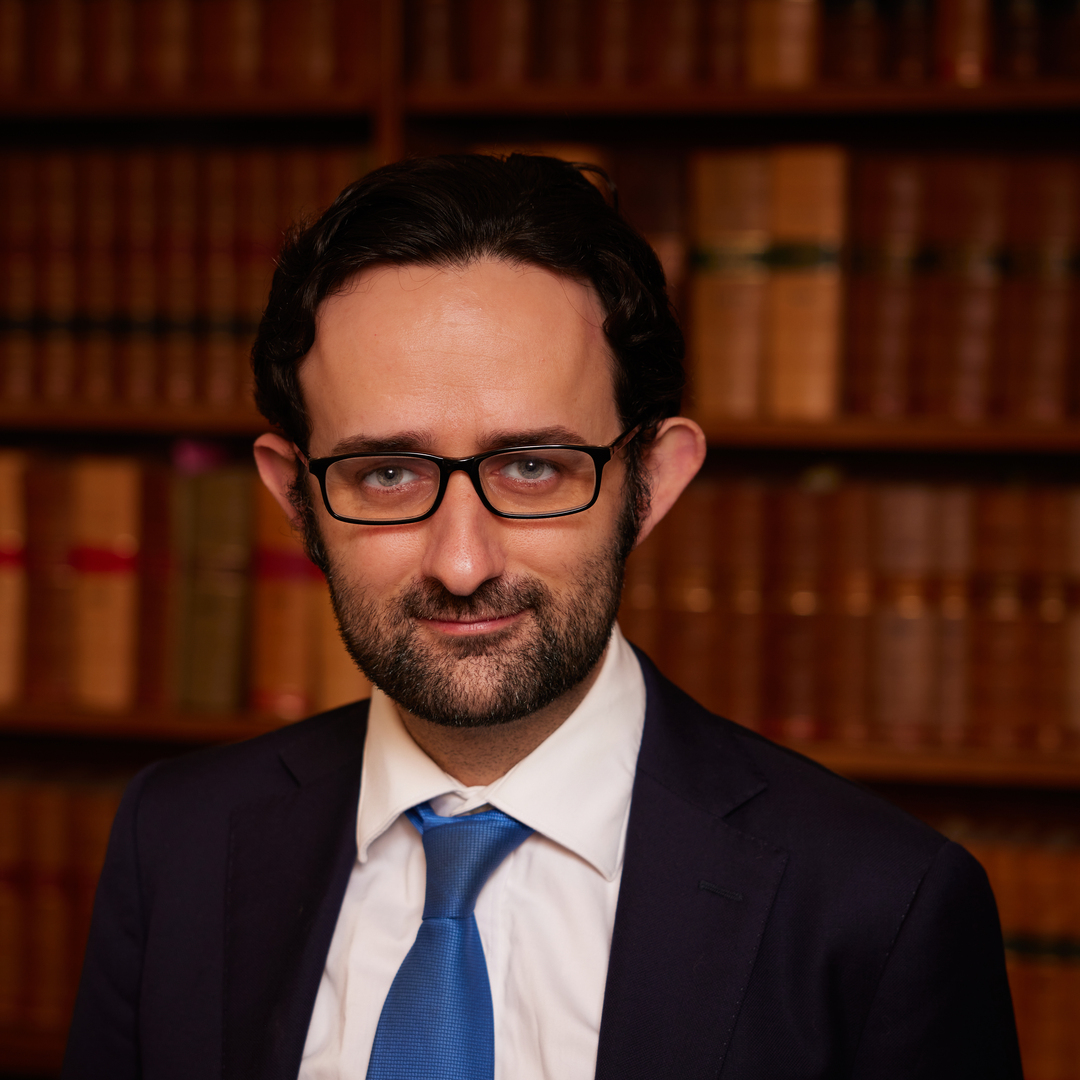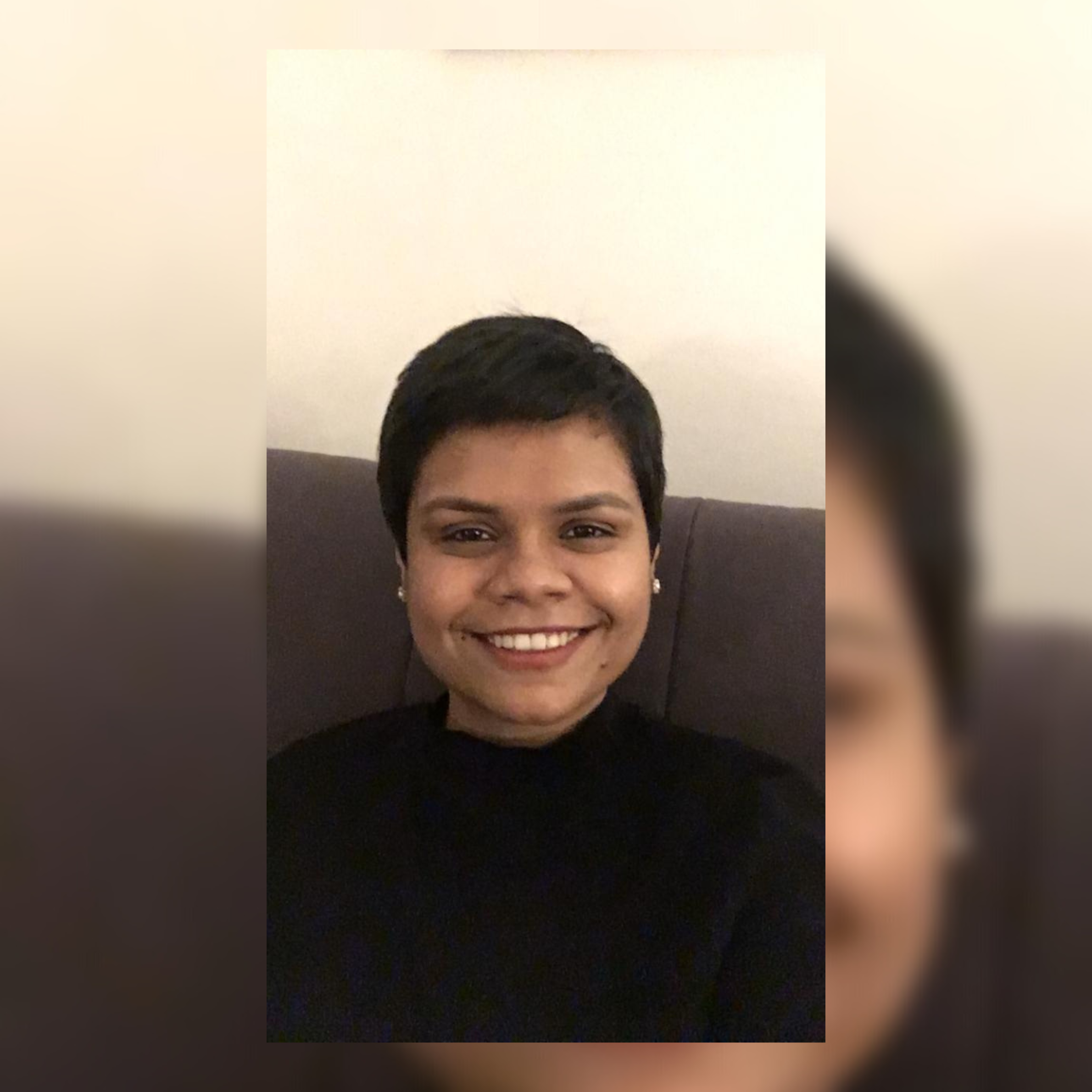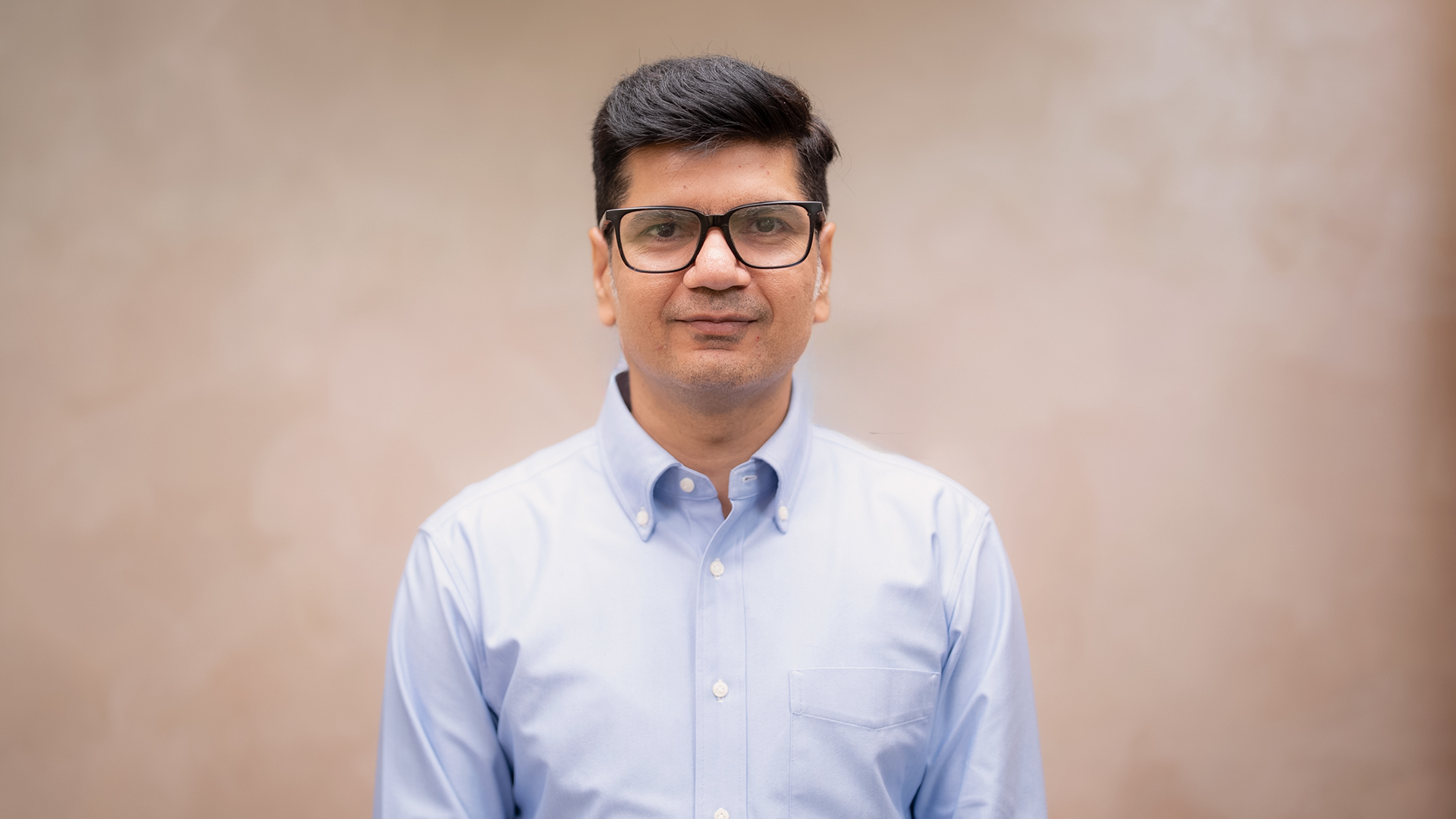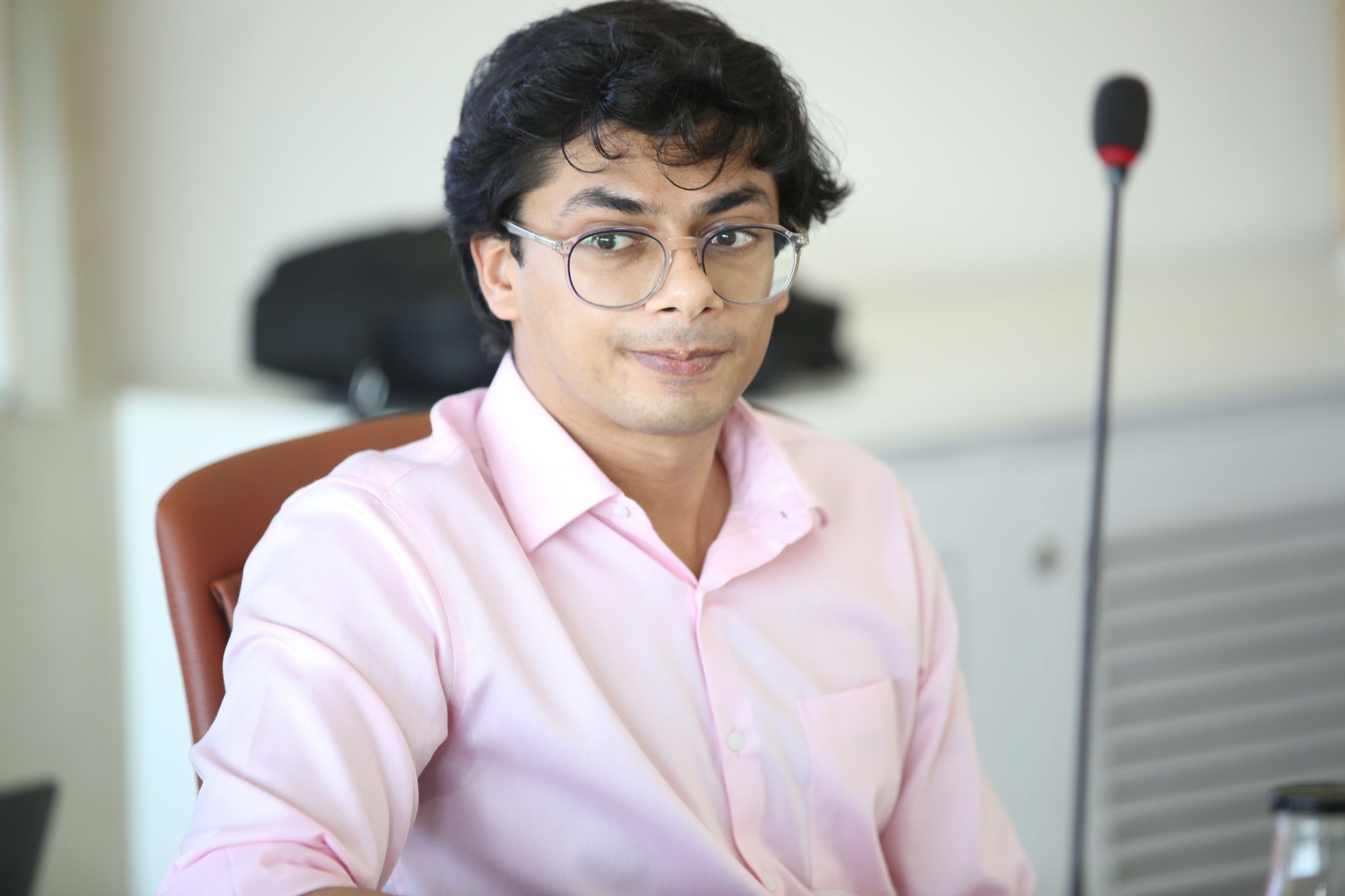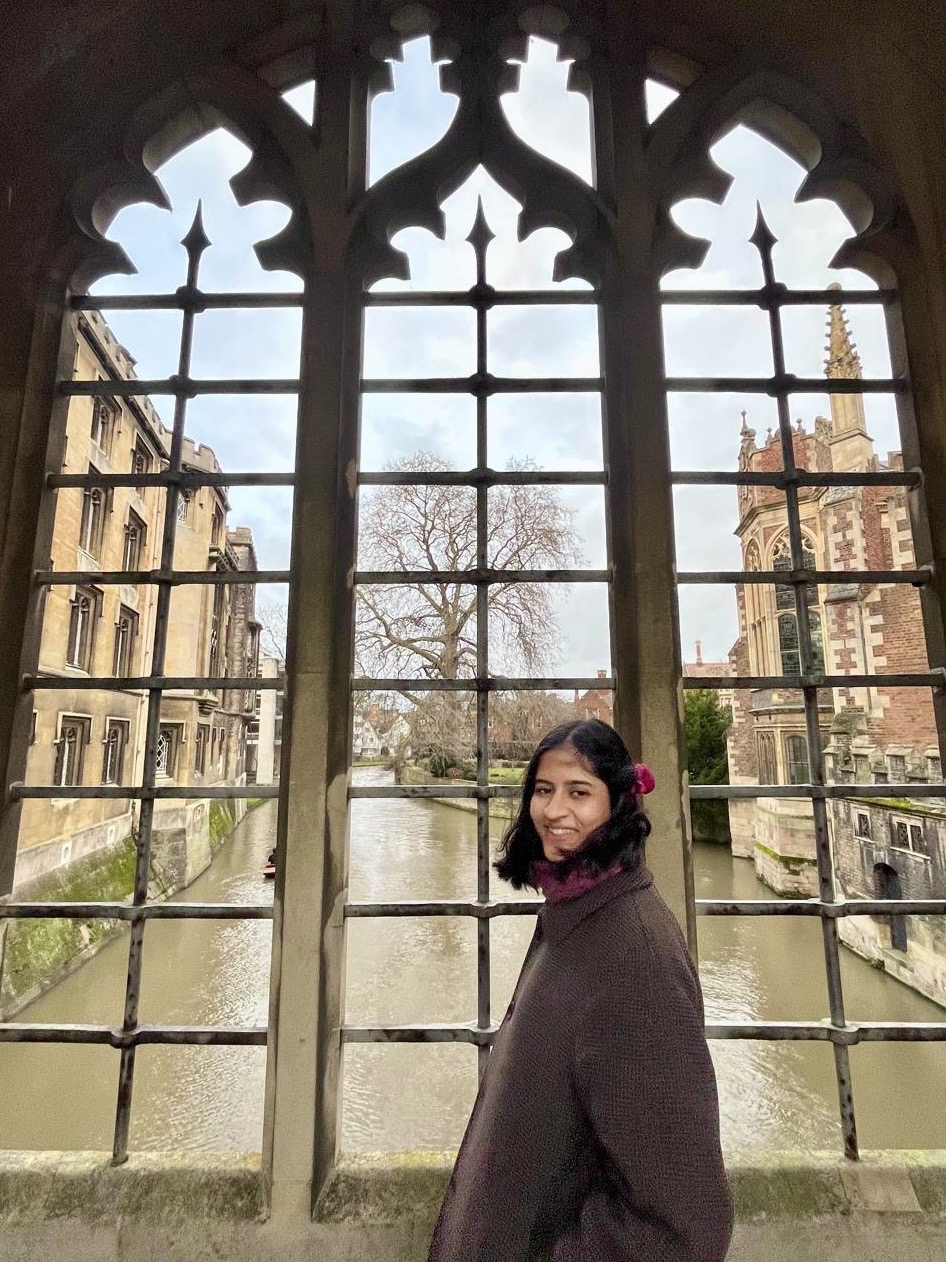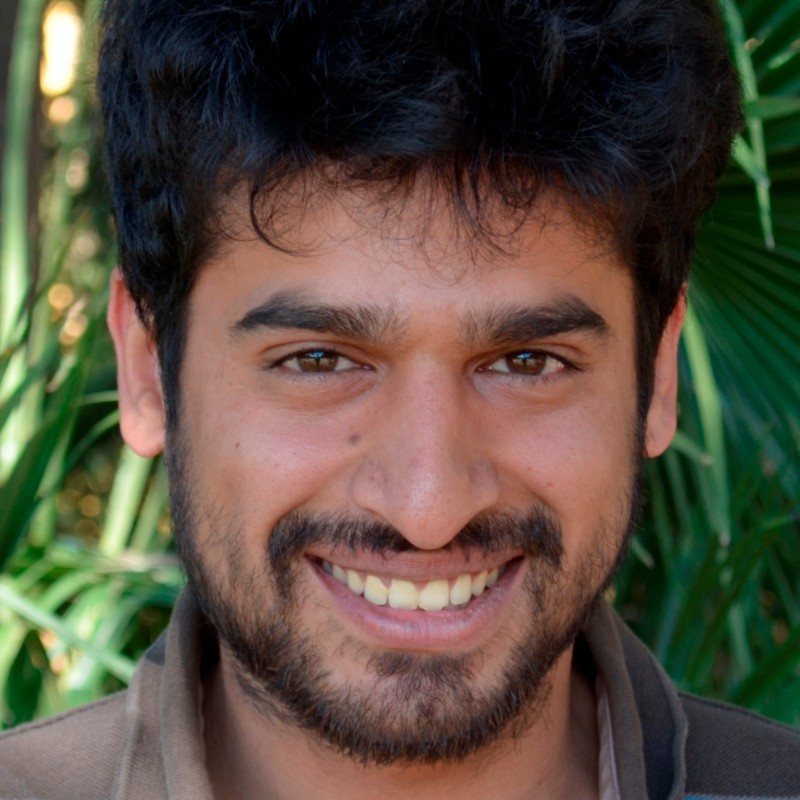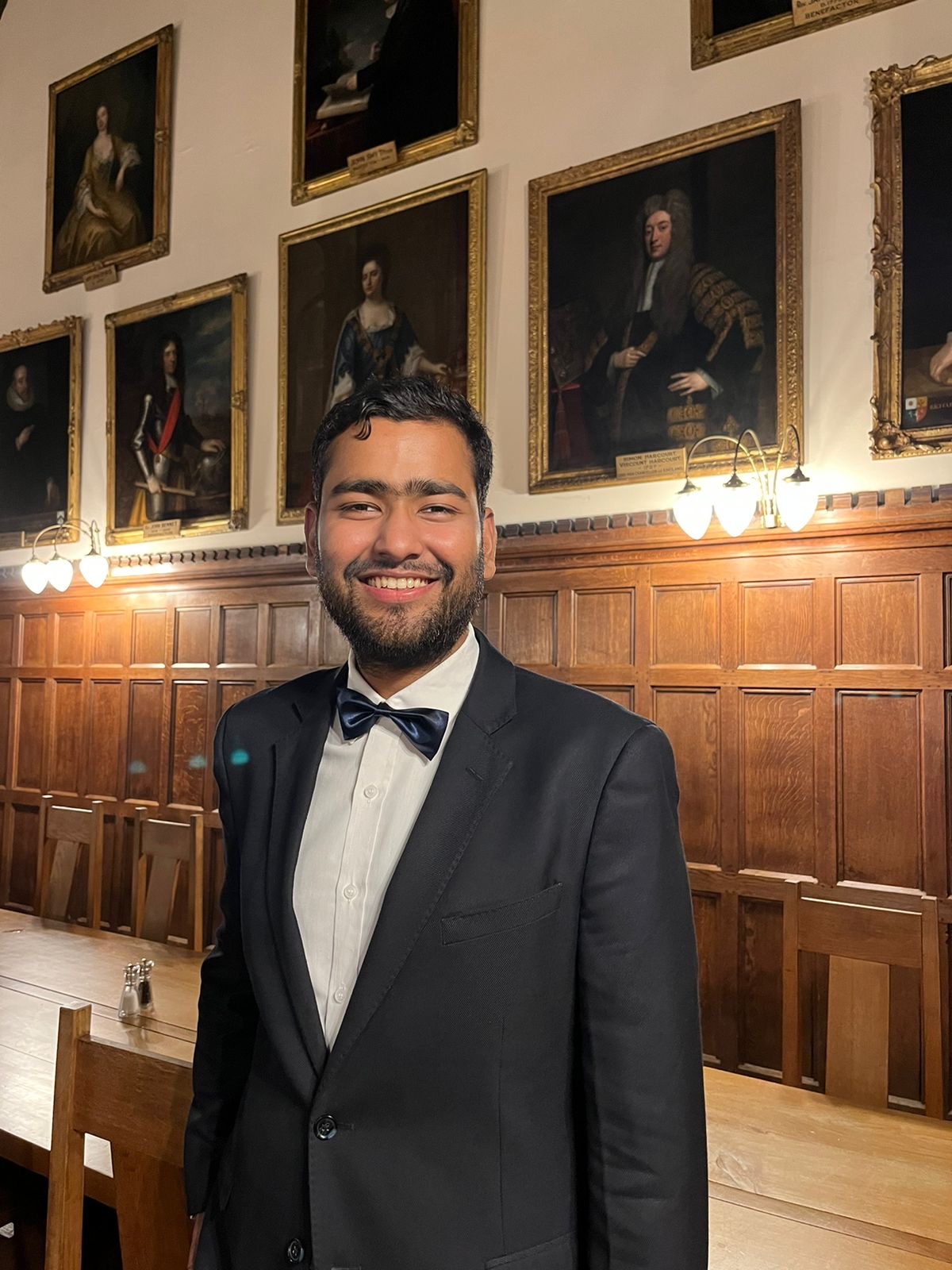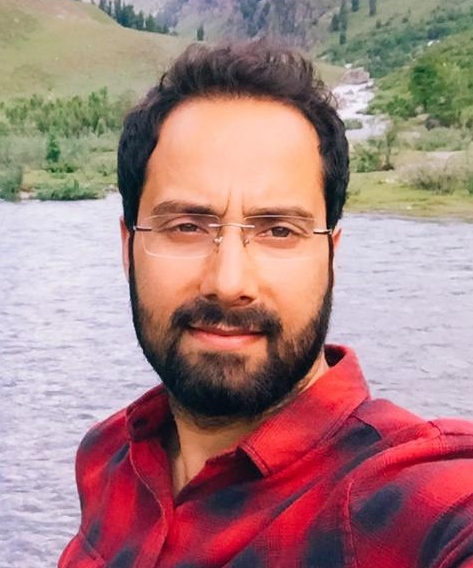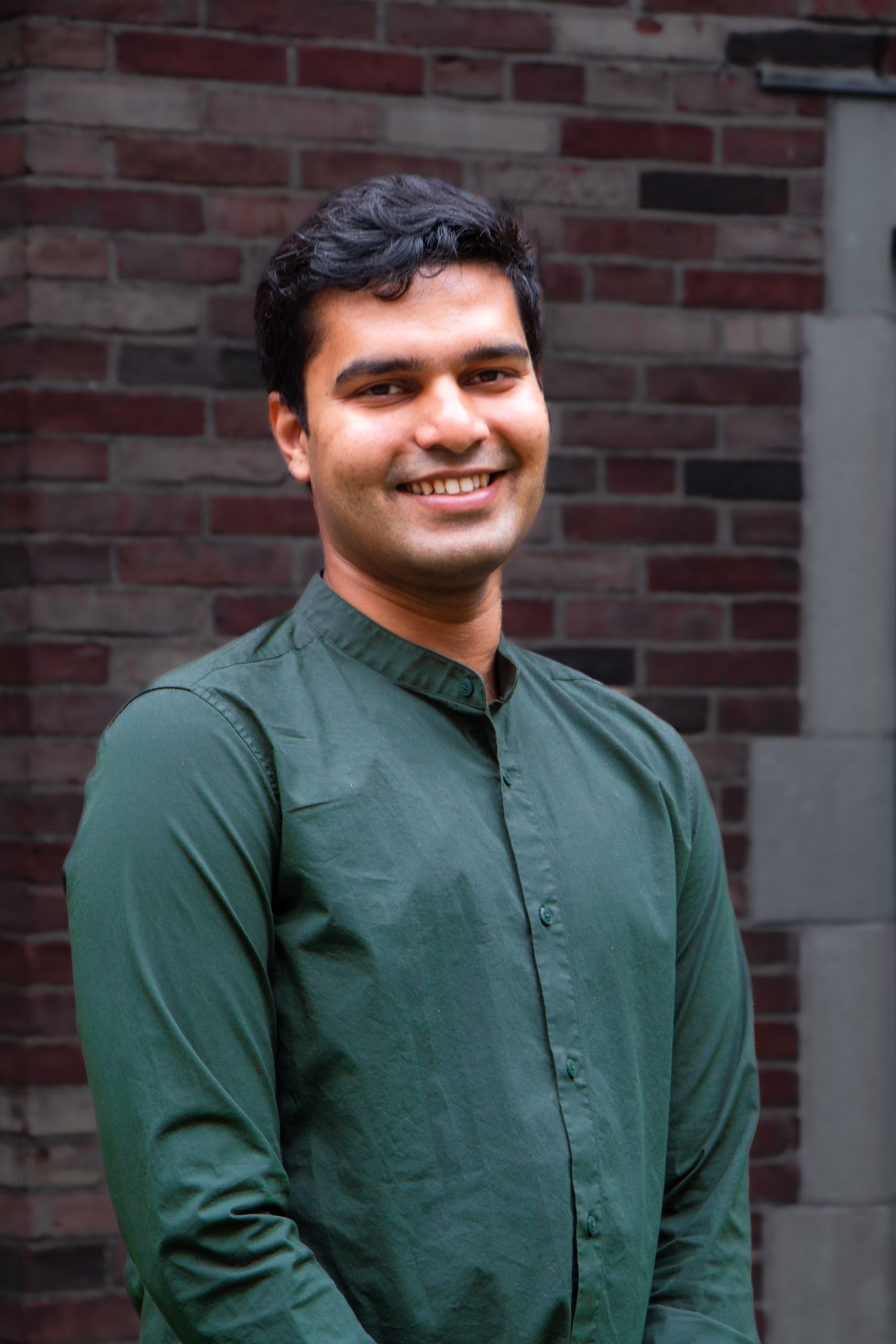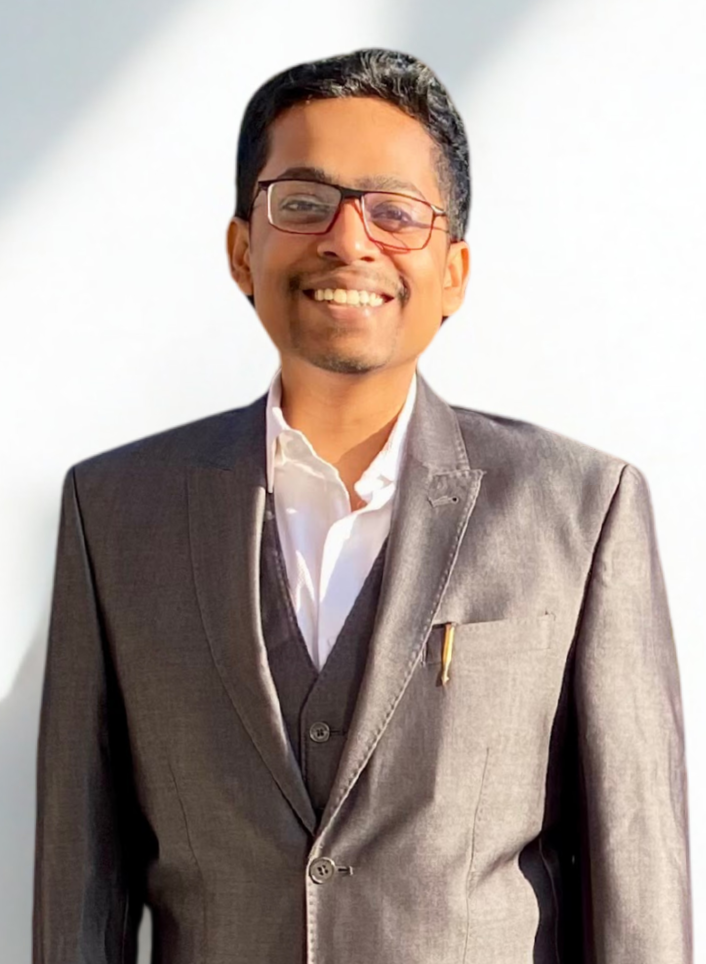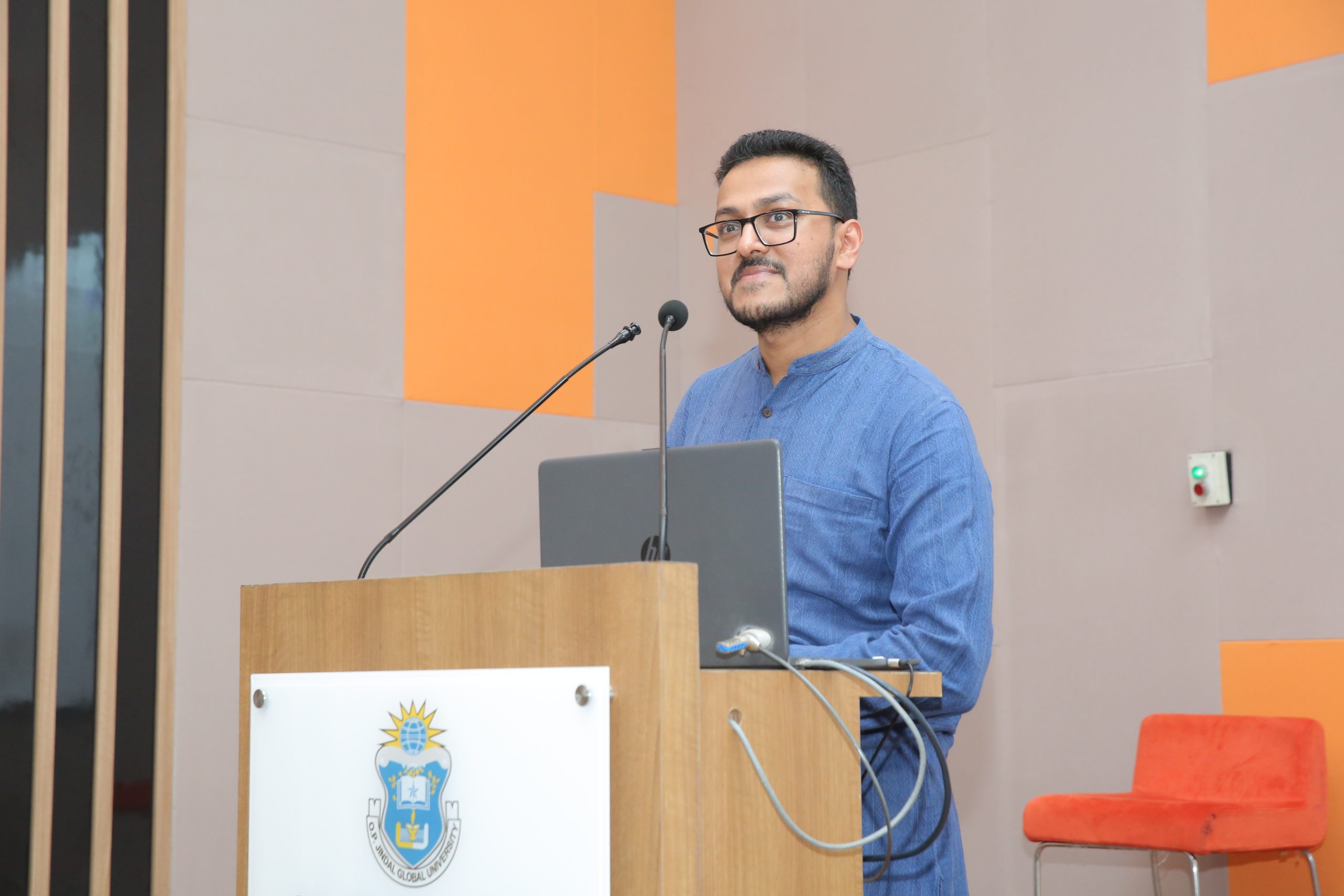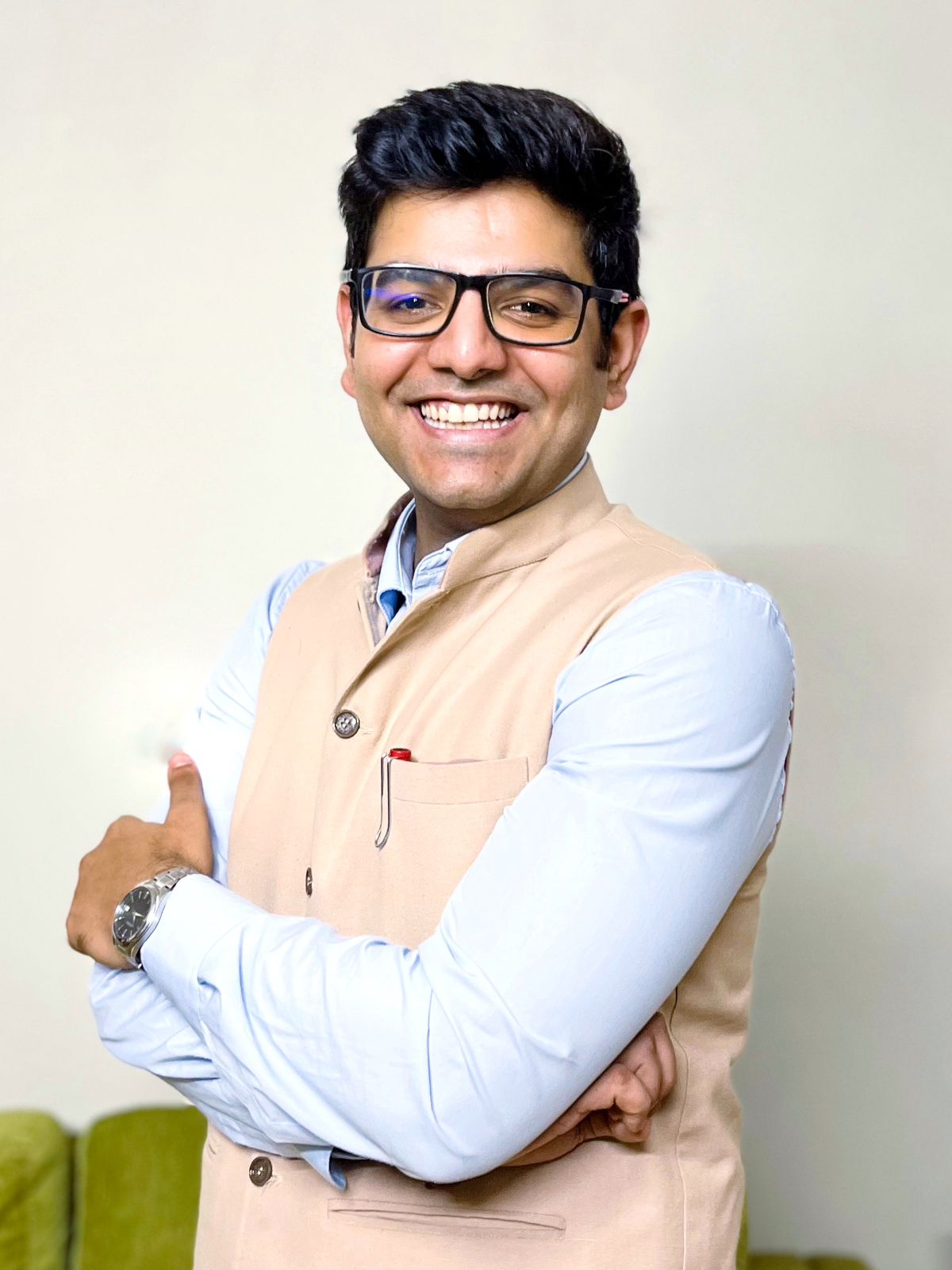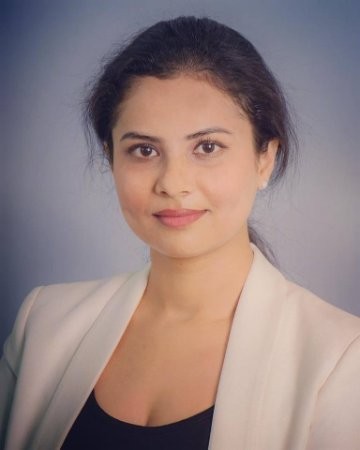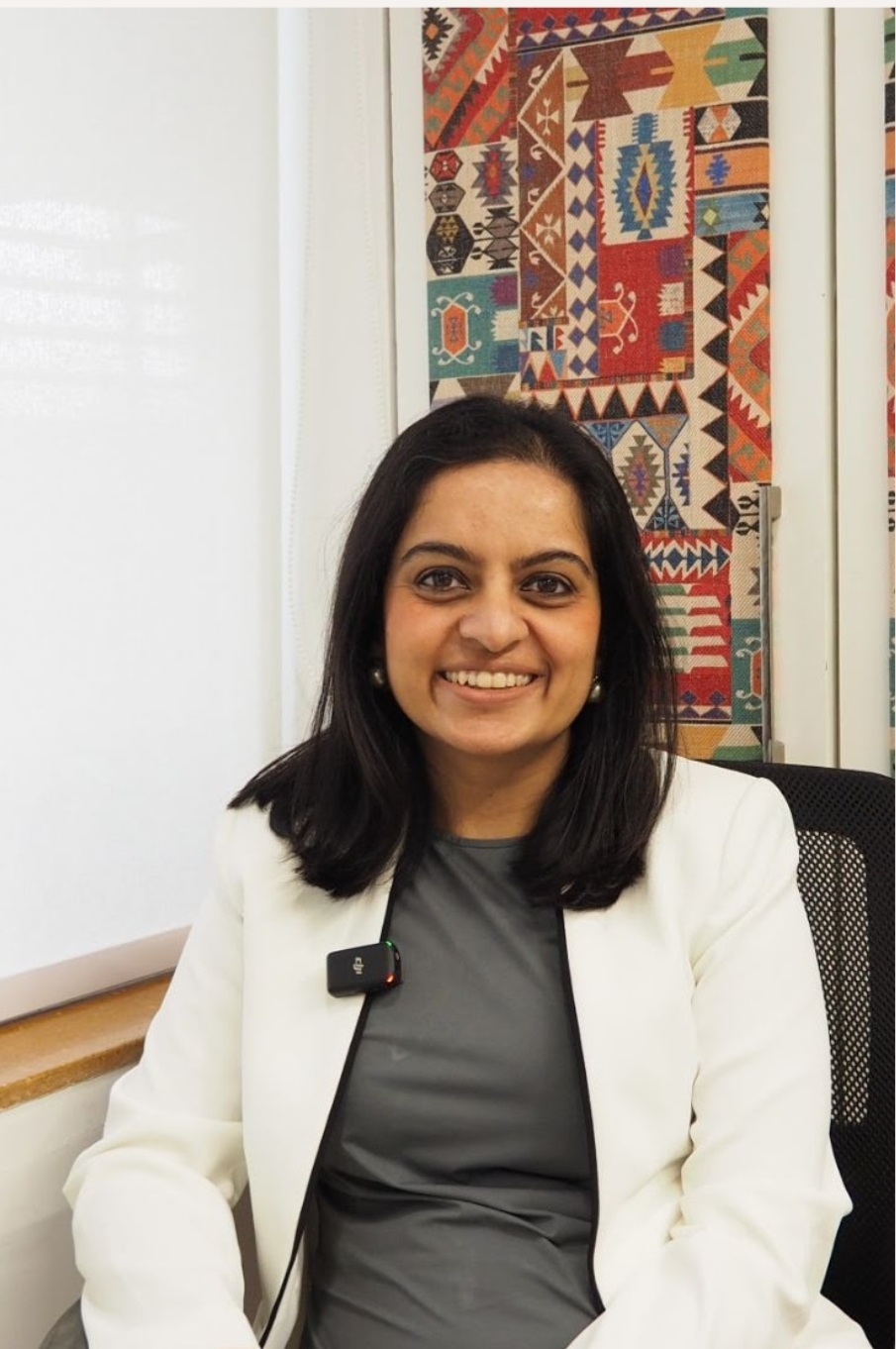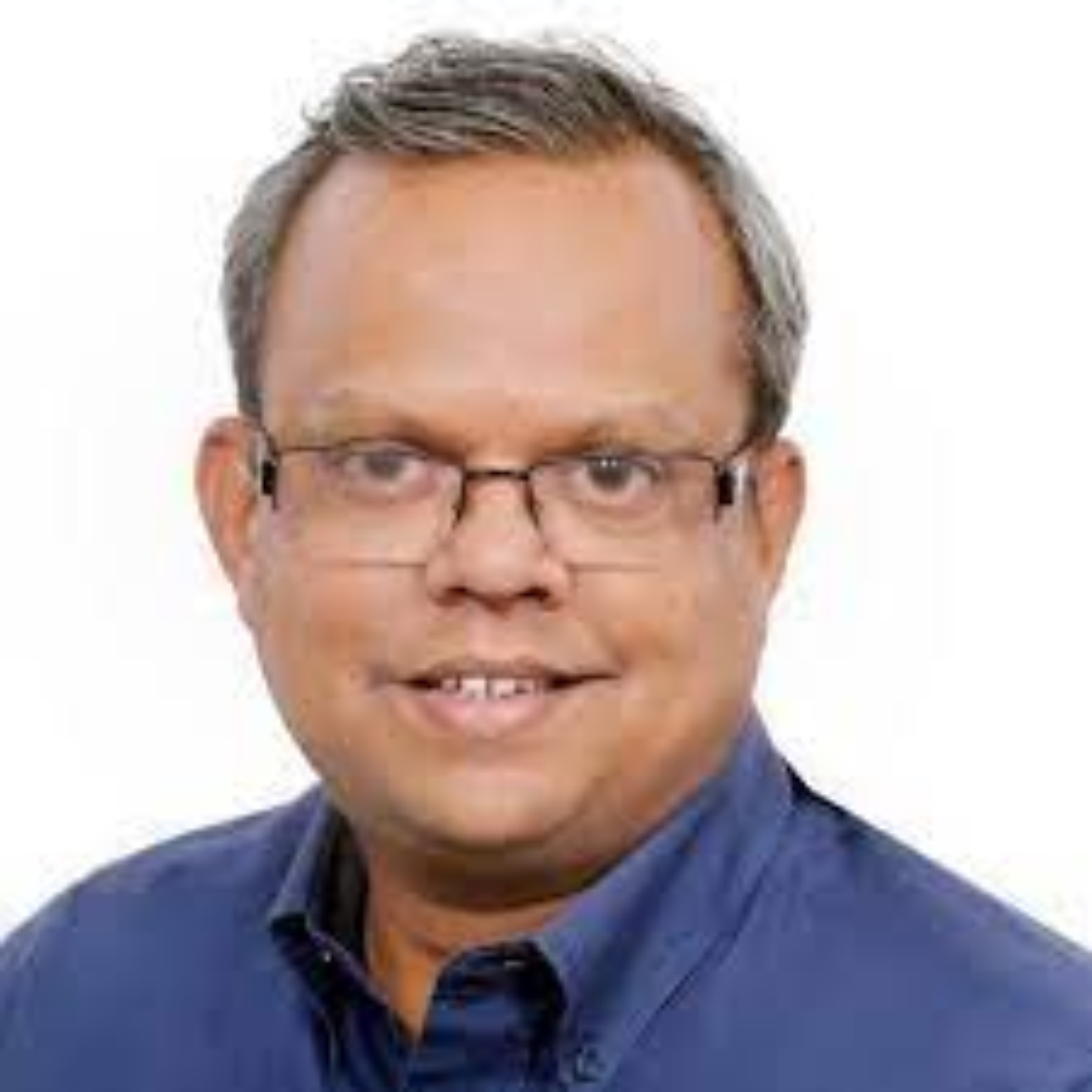Alok Prasanna Kumar
Alok Prasanna Kumar graduated with a B.A. LL.B. (Hons) from the NALSAR University in 2008 and obtained the BCL from the University of Oxford in 2009. He is the Co-Founder and Lead, Vidhi Karnataka. His areas of research include judicial reforms, Constitutional law, urban development, and law and technology. He writes a monthly column for the Economic and Political Weekly and has published in the Indian Journal of Constitutional Law and National Law School of India Review apart from media outlets such as The Hindu, Indian Express, Scroll, Quint and Caravan. He has practiced in the Supreme Court and Delhi High Court from the chambers of Mr Mohan Parasaran, and currently also co-hosts the Ganatantra podcast on IVM Podcasts.
Pankhuri Agarwal
Pankhuri Agrawal is an Assistant Professor of Law at BML Munjal University, Gurgaon. Pankhuri is a Ph.D. candidate at NALSAR, Hyderabad. She completed her LL.M. (Business Laws) from NLSIU Bangalore and B.B.A.LL.B (Constitutional Law Hons.) from NLUO, Cuttack. Her doctoral thesis examines the implications of the Goods and Services Tax Law, 2017, on fiscal federalism in India and her areas of interest lie in constitutional law and political economy
Sunisth Goyal
Sunishth Goyal is an Assistant Professor in the Faculty of Law at NALSAR University, Hyderabad. He joined NALSAR in July 2023. Earlier he taught at School of Law, BML Munjal University Gurugram. Prior to becoming an academic, he was a practicing attorney specialising in criminal law. He was also enlisted as a Panel Counsel for The Punjab State Cooperative Bank. He has obtained his B.A. LL.B. (Hons.) from NALSAR University of Law, Hyderabad (2014-2019). He earned his LLM degree (2020-2021) specialising in ‘Forensics, Criminology and Law’ track from Maastricht University in the Netherlands. He was awarded the prestigious Maastricht University Holland-High Potential Scholarship by the university in collaboration with the Dutch government. He specialises in Criminal Law and Procedure, Law of Narcotics, and Theory of Comparative Criminal Procedure.
Douglas McDonald-Norman
Douglas McDonald-Norman is a barrister at Eight Selborne Chambers, a PhD student at the Gilbert + Tobin Centre for Public Law at the University of New South Wales.
Nick Robinson
Nick is a Lecturer in Political Science at Yale University and a Schell Visiting Human Rights Fellow at Yale Law School. He has extensively studied and researched various aspects of legal profession and judicial administration in India. After graduating from Yale Law School in 2006, he spent seven years in South Asia, clerking for Chief Justice Sabharwal of the Indian Supreme Court, and working at Human Rights Law Network (HRLN) in New Delhi on rights litigation involving water and health. He has also taught law at National Law School-Bangalore, Lahore University Management Sciences, and Jindal Global Law School.
Nikita Sonavane
Nikita Sonavane has worked as a legal researcher and an advocate for five years. She is the co-founder of the Criminal Justice and Police Accountability Project (CPAProject) a Bhopal based litigation and research intervention focused on building accountability against criminalisation of marginalised communities by the Police and the criminal justice system. Her writings have been intersection of policing, caste and digitisation of the criminal justice in India. Nikita has previously worked on issues of local governance, forest rights, and gender in the Adivasi region of Dang in Gujarat. She graduated with a B.A. (Political Science) degree from St. Xavier’s College, Mumbai and an LL.B. degree from Government Law College, Mumbai. Nikita holds an LL.M in Law and Development degree from Azim Premji University (APU), Bangalore. Her writings have been published by the AI Now Institute at NYU, Indian Express, the Hindu, Caravan among others.
Prashant Narang
Prashant Narang is Deputy Director – Research and Programs at TrustBridge Rule of Law Foundation. His work focuses on government contracting and dispute resolution, especially how robust ADR mechanisms can ease judicial burdens through effective design and integration. His broader interests include law and informality, governance, civil liberties (particularly economic freedom), and education law, which he studies using economic, institutional, and empirical methods. He has held research positions at West Virginia University and Centre for Civil Society, published widely, contributed to projects supported by UNESCO, and provided testimony before the Parliamentary Standing Committee on street vending law enforcement. He also writes Scribbles & Sidebars, a Substack newsletter on contemporary policy issues.
Lalit Panda
Lalit Panda is a Specialist (Rights and Regulation) at the Vidhi Centre for Legal Policy. He has worked as a researcher at the intersection of law and policy, briefly at the 21st Law Commission of India and then at Vidhi since 2017. While his primary interests have been in the right to equality and non-discrimination and in data protection law, he has also studied subjects such as electoral finance, delimitation, governors, state borrowings, land titling, disinvestment, and regulatory design. He holds a B.A.LL.B. from Gujarat National Law University (2016) and an LL.M. from Harvard Law School (2024). Alongside an emphasis on constitutional law in prior work, Lalit is also deeply interested in the interplay of law, political theory, and economics in legislative drafting and policymaking.
Shagun Bhargava
Shagun Bhargava is a lawyer and criminologist. She is currently a Lecturer at the School of Law, BML Munjal University. Her research interests focus on penal and carceral policies and criminal justice decision-making, which she explores through qualitative empirical research methods. She earned an MPhil in Criminological Research from the University of Cambridge, where she received a distinction on her thesis titled ‘Parole Decision-Making in Delhi’. Her master’s studies and fieldwork were supported by a scholarship and research grant from the JN Tata Endowment. Prior to her master’s, she practiced before the Delhi High Court and the trial courts of Delhi. She completed her undergraduate degree in law at NALSAR University of Law and graduated with a gold medal.
Darshan Datar
Dr Darshan Datar is a lecturer at CQ University with a PhD in Laureate Program in Comparative Constitutional Law from the University of Melbourne. He also holds LL.M degrees from the Central European University and the European University Institute. Dr Datar has additionally served as a World Comparative Law Visiting Scholar at Humboldt University and as a visiting fellow at the Max Planck Institute for Comparative Public Law and International Law. His research focuses on constitutional theory and secularism, with broader interests in comparative constitutional law. Dr Datar’s work has been published in peer-reviewed journals, including the International Journal of Constitutional Law, the Australian Journal of Law and Religion, and World Comparative Law (VRU).
Anshul Dalmia
Anshul Dalmia is a Research Fellow at the Centre for Constitutional Law housed in the Vidhi Centre for Legal Policy, one of India’s premier independent think-tanks. He has undertaken non-commissioned projects surrounding the constitutional issues inflicting the impending delimitation of electoral constituencies. Moreover, he continues to advise various State governments and financial organizations on wide-ranging constitutional issues. He recently graduated in 2024 from the University of Oxford with the Bachelor of Civil Law degree as a KC Mahindra Scholar wherein he received the Oxford Law Faculty Prize for the course on ‘Constitutionalism in Asia’. He further received scholarships such as the Hansell Grant and the Alice Horseman Scholarship from Somerville College, Oxford to pursue further constitutional research projects. He has also completed his undergraduate degree (BA LLB (Hons.)) from the WB National University of Juridical Sciences in 2017. He received the Professor Dr. Madhava Menon Gold Medal for securing Rank 1 in the year 2022. He was a part of the editorial boards of NUJS Law Review, Journal of Indian Law and Society, and the Indian Constitutional Law Review. He has published widely (including book chapters, journal articles, blog-posts and newspaper opinion pieces)on constitutional law and theory, including on forums such as Constitutional Law and Philosophy Blog, Indian Constitutional Law Review, Comparative Constitutional Law and Administrative Law Journal, and Oxford Human Rights Hub.
Burhan Majid
Burhan Majid is an Assistant Professor of Law at the Hamdard Institute of Legal Studies and Research, School of Law, Jamia Hamdard, New Delhi. He is a recipient of the Indian Equality Law Fellowship (2023) at the Bonavero Institute of Human Rights, Faculty of Law, University of Oxford, and the VRU-WCL Short-Term Fellowship (2023) at the Chair for Public and Comparative Law, Humboldt University, Berlin.
Burhan’s research focuses on the constitutionalisation of minority rights in India and the constitutional trajectory of Jammu & Kashmir. His writings have appeared in World Comparative Law, Economic and Political Weekly, Verfassungsblog, Indian Express, Himal Southasian, The Wire, The India Forum, Outlook India, Supreme Court Observer, and The Quint.
Akshat Agarwal
Akshat Agarwal is a JSD Candidate at Yale Law School and the Drinan Visiting Assistant Professor at Boston College Law School. Akshat researches and writes about the legal regulation of families and how societal contexts and the political economy shape the law and are shaped by it. His scholarship has been published or is forthcoming in law reviews and peer-reviewed journals, including the Case Western Reserve Law Review, Yale Journal of Law and Feminism, the International Journal of Constitutional Law, and the Indian Law Review. He also regularly contributes to newspapers and legal blogs. Akshat holds a LL.M. (2021) from Yale Law School and a B.A., LL.B. (Hons.) (2017) from the National Law School of India University, Bengaluru.
Rahul Mohanty
Rahul Mohanty is an academic in the field of public international law with over four years of teaching and research experience, and is an Assistant Professor at Jindal Global Law School (JGLS), O.P. Jindal Global University, India.
He has taught a range of courses, including Public International Law, Theoretical approaches to International Law, International dispute settlement, International Financial Institutions, International Climate Change Law, and Environmental law, to both undergraduate and post-graduate students. He has also previously been an Assistant Professor at NALSAR University of Law. He is a Visiting Faculty at the National Law School of India University and has designed and taught several electives on theoretical approaches to international law, and international law and armed conflicts. He regularly writes on climate change law, global justice, international courts, climate finance, and Indian environmental law, among other issues. He has also served as an Assistant Editor of the Jindal Global Law Review, which is the flagship law journal of the Jindal Global Law School, and was the convener of JGLS Research Cluster on the Third World Approaches to International Law (TWAIL).
His current research interests include global governance (specifically climate governance), climate justice, international organizations, international courts, international law and the global south, and climate change law. His articles have been published in academic journals like Asian Journal of International Law, Law and Practice of International Courts and Tribunals, and Indian Law Review. Beyond academic work, he also engages with policymakers and various governmental bodies in India concerning just transition and climate adaptation.
He holds a Master’s degree in law (BCL) from the University of Oxford (OICSD-HSA Advocates scholarship awardee) and has completed his B.A.LL.B. (Hons.), a graduate degree in law from NALSAR University of Law, India (topper and 13-gold medallist). Prior to joining academia, he had also worked in India as a law firm associate and as an in-house counsel.
Harsh Mahaseth
Harsh Mahaseth is a Nepalese citizen working as an Associate Professor, Associate Director (Nehginpao Kipgen Center for Southeast Asian Studies) and Senior Research Fellow (Centre for Alternative Dispute Resolution) at Jindal Global Law School, O.P. Jindal Global University, India. He has worked as a visiting faculty at NALSAR University of Law and Mahindra University. He is listed as one of the Top-Cited International Law Scholars in India, a list created by the Indian Blog of International Law that contains the names of legal stalwarts in India.
Swapnil Tripathi
Dr. Swapnil Tripathi leads Charkha, the Constitutional Law Centre at the Vidhi Centre for Legal Policy. He specialises in constitutional and administrative law, with a particular focus on constitutional interpretation and judicial review. He studied law at National Law University, Jodhpur, and subsequently pursued the BCL and the DPhil at the University of Oxford. His doctoral research examined the Supreme Court’s exercise of Public Interest Litigation, with an emphasis on its procedural dimensions. He was supervised by Justice Catherine O’Regan and supported by the Oxford India Centre for Sustainable Development, where he was awarded the Gopal Subramanium Scholarship.
Dr. Dakshina Chandra
Dr. Dakshina Chandra is an Assistant Professor of Law at the National Law University, Delhi. She holds degrees in law from NALSAR University of Law, Hyderabad (2010); New York University School of Law (2014); and Deakin University School of Law, Australia (2020). Her research focuses on law and technology; and regulatory governance. Dakshina has designed and taught capacity building programs for Indian regulatory authorities, and chaired and lectured several bachelor and masters level law courses as a member of faculty at Indian and Australian universities. She has advised several Indian governmental agencies on law and technology matters. She is a former corporate lawyer, having worked principally in the areas of project finance and private equity.
Bhargavi Zaveri Shah
Bhargavi is a PhD candidate at the National University of Singapore. Her thesis is on the legitimacy challenges of the Reserve Bank of India. She is also the co-founder of The Professeer, a litigation analytics engine for Indian courts. Link to her website is: https://sites.google.com/view/bhargavizaveri/
Past Editors
Chinmayi Arun
Chinmayi Arun is a resident fellow of the Information Society Project at Yale Law School. She has served on the faculties of NUJS and National Law University Delhi from 2010 onwards, and was the founder Director of the Centre for Communication Governance at NLU Delhi. She was a Fellow of the Berkman Klein Center of Internet & Society at Harvard University from 2017-2019 and a faculty associate of the Center prior to that. Chinmayi has law degrees from NALSAR (2006), the LSE (2009) and Yale (2020). Her research tends to focus on freedom of expression, hate speech, privacy and artificial intelligence.
Vasujith Ram
Vausjith is currently an LL.M. Candidate at Harvard Law School and is serving as a Research Assistant to Professor Stephen E. Shay. He has published widely and most recently co-edited a book titled ‘Supreme Court of India: The Beginnings’ by George H. Gadbois Jr. Notalby he has also co-athored a book with legal luminary Marc Galanter on the theme of suo-moto exercise of jurisdiction by Indian courts.
Arun Thiruvengadam
Arun Thiruvengadam holds degrees in law from the National Law School, Bangalore and the New York University School of Law. Between 1995-97, he served as a Law-clerk-cum-research-assistant to the Chief Justice of India, Justice A.M. Ahmadi. He has published widely and most recently authored a book titled ‘The Constitution of India: A Contextual Analysis’ (2018).
Anup Surendranath
Anup teaches Constitutional Law at NALSAR University of Law. He is also director of Square Circle Clinic NALSAR. He was invited by Chief Justice RM Lodha (as he then was) in May 2014 to serve as the Deputy Registrar (Research) in the Supreme Court and was on deputation to the Supreme Court until August 2015. The only other instance of an academic being invited to the Supreme Court for a similar assignment was almost 30 years ago, in the late 80s, under Chief Justice PN Bhagwati. He holds B.A.,LL.B. (Hons.) from NALSAR and has to his credit BCL, M.Phil and D.Phil from the University of Oxford.
Siddharth Raja
A seasoned corporate lawyer, Siddharth is in his 25th year of practice, and focuses on private equity and venture capital transactions; and on cross-border and domestic mergers and acquisitions. He has been highly ranked for several years, including by Chambers & Partners – lauded for his “global business perspective”, “attention to detail” and “excellent technical knowledge”. A Gold Medallist from NLSIU, Siddharth was a British Council & Foreign and Commonwealth Office Chevening, and J. N. Tata, Scholar at the University of Warwick Law School. He’s a Senior Partner at VERTICES PARTNERS, a pan-India corporate and commercial law Firm. He is also a visiting faculty at NLS, Bangalore.
Venkat Venkatesan
Venkatesan is a journalist with a long experience of writing and commenting on political and legal matters. His book ‘Constitutional Conundrums: Challenges to India’s Democratic Process’ has been published by LexisNexis in 2014. The book, mostly written before the 2014 general elections, has an Afterword written after the declaration of results. He serves as a Senior Editor with the magazine ‘Frontline’.

